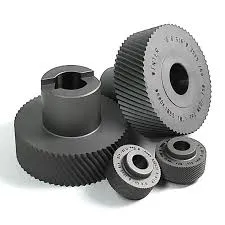
-
 Afrikaans
Afrikaans -
 Albanian
Albanian -
 Amharic
Amharic -
 Arabic
Arabic -
 Armenian
Armenian -
 Azerbaijani
Azerbaijani -
 Basque
Basque -
 Belarusian
Belarusian -
 Bengali
Bengali -
 Bosnian
Bosnian -
 Bulgarian
Bulgarian -
 Catalan
Catalan -
 Cebuano
Cebuano -
 Corsican
Corsican -
 Croatian
Croatian -
 Czech
Czech -
 Danish
Danish -
 Dutch
Dutch -
 English
English -
 Esperanto
Esperanto -
 Estonian
Estonian -
 Finnish
Finnish -
 French
French -
 Frisian
Frisian -
 Galician
Galician -
 Georgian
Georgian -
 German
German -
 Greek
Greek -
 Gujarati
Gujarati -
 Haitian Creole
Haitian Creole -
 hausa
hausa -
 hawaiian
hawaiian -
 Hebrew
Hebrew -
 Hindi
Hindi -
 Miao
Miao -
 Hungarian
Hungarian -
 Icelandic
Icelandic -
 igbo
igbo -
 Indonesian
Indonesian -
 irish
irish -
 Italian
Italian -
 Japanese
Japanese -
 Javanese
Javanese -
 Kannada
Kannada -
 kazakh
kazakh -
 Khmer
Khmer -
 Rwandese
Rwandese -
 Korean
Korean -
 Kurdish
Kurdish -
 Kyrgyz
Kyrgyz -
 Lao
Lao -
 Latin
Latin -
 Latvian
Latvian -
 Lithuanian
Lithuanian -
 Luxembourgish
Luxembourgish -
 Macedonian
Macedonian -
 Malgashi
Malgashi -
 Malay
Malay -
 Malayalam
Malayalam -
 Maltese
Maltese -
 Maori
Maori -
 Marathi
Marathi -
 Mongolian
Mongolian -
 Myanmar
Myanmar -
 Nepali
Nepali -
 Norwegian
Norwegian -
 Norwegian
Norwegian -
 Occitan
Occitan -
 Pashto
Pashto -
 Persian
Persian -
 Polish
Polish -
 Portuguese
Portuguese -
 Punjabi
Punjabi -
 Romanian
Romanian -
 Russian
Russian -
 Samoan
Samoan -
 Scottish Gaelic
Scottish Gaelic -
 Serbian
Serbian -
 Sesotho
Sesotho -
 Shona
Shona -
 Sindhi
Sindhi -
 Sinhala
Sinhala -
 Slovak
Slovak -
 Slovenian
Slovenian -
 Somali
Somali -
 Spanish
Spanish -
 Sundanese
Sundanese -
 Swahili
Swahili -
 Swedish
Swedish -
 Tagalog
Tagalog -
 Tajik
Tajik -
 Tamil
Tamil -
 Tatar
Tatar -
 Telugu
Telugu -
 Thai
Thai -
 Turkish
Turkish -
 Turkmen
Turkmen -
 Ukrainian
Ukrainian -
 Urdu
Urdu -
 Uighur
Uighur -
 Uzbek
Uzbek -
 Vietnamese
Vietnamese -
 Welsh
Welsh -
 Bantu
Bantu -
 Yiddish
Yiddish -
 Yoruba
Yoruba -
 Zulu
Zulu
Wholesale Hydraulic Thread Rolling Machines for Efficient Metal Fabrication
Wholesale Hydraulic Thread Rolling Machine A Comprehensive Overview
In today’s fast-paced manufacturing environment, efficiency and precision are critical to achieving competitive advantages. Among the various technologies employed in the industrial sector, hydraulic thread rolling machines stand out as essential tools for producing high-quality threaded fasteners. This article aims to explore the significance and functionality of wholesale hydraulic thread rolling machines, their applications, and the advantages they provide to manufacturers.
What is a Hydraulic Thread Rolling Machine?
A hydraulic thread rolling machine is a specialized piece of equipment designed to create threads on cylindrical metal workpieces through a cold forging process. Unlike traditional machining methods, which remove material to create threads, thread rolling displaces material, resulting in improved strength and finer surface finishes. This process utilizes hydraulic power to apply significant pressure on the material, allowing for efficient thread formation in a fraction of the time required by conventional methods.
How Does it Work?
The operation of a hydraulic thread rolling machine involves several key components rollers, a hydraulic system, and a control mechanism. The workpiece is positioned between two rollers, which rotate in opposite directions. As the rollers move towards each other, they exert a substantial force on the material, causing it to flow and form threads as per the roller's profile. The hydraulic system plays a crucial role in ensuring that the necessary pressure is applied uniformly, resulting in consistent and high-quality threads.
Applications in Various Industries
Hydraulic thread rolling machines are utilized across multiple sectors, including automotive, aerospace, electronics, and construction. These machines are particularly valuable in the mass production of bolts, screws, and other fasteners, where precision and durability are paramount. Additionally, they are employed in creating intricate thread patterns that would be challenging to achieve using traditional cutting methods.
In the automotive industry, for example, thread rolling machines are used to manufacture components such as engine bolts and transmission parts, which require high tensile strength to withstand extreme operational conditions. Similarly, in the aerospace sector, where safety and reliability are critical, these machines are used to produce specialized fasteners that can endure substantial stress and temperature variations.
wholesale hydraulic thread rolling machine

Advantages of Wholesale Hydraulic Thread Rolling Machines
1. Enhanced Strength and Durability The cold forging process associated with thread rolling results in workpieces that exhibit superior tensile strength and fatigue resistance compared to machined threads. This is largely due to the grain flow characteristics that develop during the rolling process.
2. Improved Surface Finish The thread rolling process produces smoother thread profiles, which enhances the performance and aesthetics of the final product. This can reduce the need for additional finishing processes, saving both time and costs.
3. Increased Production Efficiency Hydraulic thread rolling machines are capable of producing large quantities of threads in a short time span. Their ability to work on multiple pieces simultaneously greatly enhances throughput, making them an attractive option for manufacturers looking to scale operations.
4. Cost-Effectiveness Investing in wholesale hydraulic thread rolling machines can lead to significant cost savings over time. The reduced wear on tools, lower energy consumption, and decreased material wastage combined contribute to a favorable return on investment.
5. Versatility These machines can be adjusted to accommodate different sizes and types of workpieces, allowing manufacturers to diversify their product offerings without the need for multiple machines.
Conclusion
Wholesale hydraulic thread rolling machines represent a vital asset for manufacturers looking to improve efficiency, quality, and production capabilities. By leveraging the advantages of this technology, businesses can not only enhance their operational output but also contribute to the overall advancement of the manufacturing industry. As demand for high-performance threaded components continues to grow, investing in hydraulic thread rolling machines will likely remain a strategic priority for manufacturers across various sectors.
